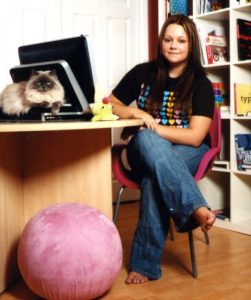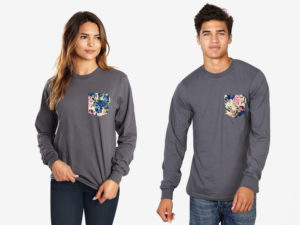Ashley Qualls was not out to become a millionaire when she launched her tutorial site whateverlife.com on the fledgling Internet of 2004. Catering primarily to other young teens her age, the 14-year-old posted free graphics she’d created, building a community around sharing free web layouts and graphics for anyone with an interest in design. Qualls later expanded the site to share free MySpace layouts and HTML tutorials so other teens could build their presence on the popular social media platforms of the times. The site itself developed into a social platform of sorts, with other users sharing their own designs.

The concept of sharing designs over the internet and connecting with other individuals with similar hobbies is very familiar to most millennials today, but it was fresh enough in the early 2000s that Qualls, by unintentionally tapping into a fresh market, gained almost immediate success.
From the beginning, Ashley had perceived the site as a hobby; everything available on her site was free and it had all spun out of her own personal interests. Once she realized she could start making money off what she was marketing, she began hosting ads on the website. Although this was her only source of revenue, Ashley generated so much web traffic due to her content that by age 17 she had become a millionaire.
As social media sites such as Twitter, Facebook, and Instagram have taken off, Qualls has maintained the site, increasing its social community appeal, and it is still incredibly successful today. An early lesson in internet content creation, Qualls’ instant success might not occur in the same quick way today as it did back in the early days of the Internet, but the options available to current bloggers and designers are perhaps now more plentiful than ever.


